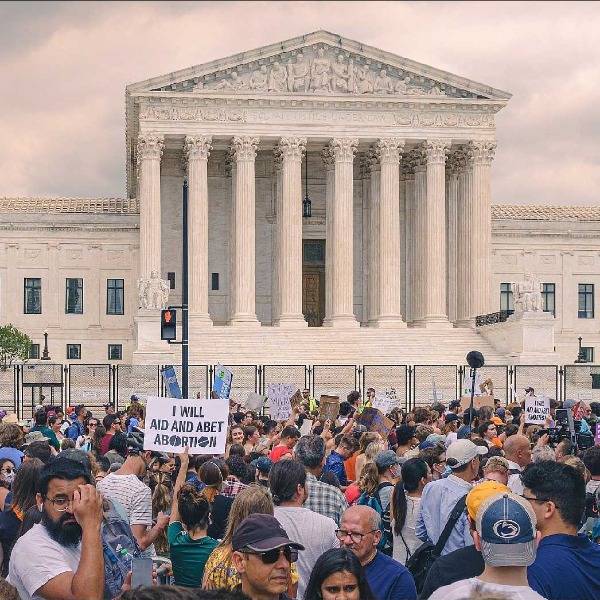Religion is the world’s single greatest fount of obscurantism, prejudice, superstition and oppression. It has caused misery to billions of people worldwide for millennia, and continues to do so in many parts of the world. As a human rights campaigner motivated by love and compassion for other people, I would be betraying my humanitarian values to embrace religious beliefs.
But I have not always held such views. On the contrary, I grew up in a devout evangelical Christian family in Melbourne, Australia, in the 1950s and ’60s. My mother and stepfather (with whom I spent most of my childhood) were prim and proper working-class parents, with very conservative views on everything. The Bible, every word of it, was deemed to be the actual word of God. Their Christianity was largely devoid of social conscience, more Old Testament than New. It was all about personal salvation. According to our church some of the worst sins were swearing, drinking alcohol, smoking, dancing, sex outside marriage, communism, belief in evolution, not praying and failing to go to church every Sunday. All my extended family was of the same persuasion. Naturally, I also embraced God.
But in high school, aged 13, I began to think for myself. I remember a smarmy RE teacher who one day gave us a lesson in faith. He argued that when we switch on a light we don’t think about it; we have faith that the room will light up. He suggested that faith in the power of God was the same as faith in the power of electricity to turn on a light. Bad analogy, I thought. What causes a light to go on when one flicks the switch is not faith; it can be demonstrated by empirical evidence. The existence of God cannot. This set my mind thinking sceptical thoughts.
This nascent scepticism was not, however, strong enough to stop me, at the age of 16, becoming a Sunday school teacher to six-year-olds. Being of an artistic persuasion I made colourful cardboard tableaux of Biblical stories. The children loved it. My classes were popular and well attended.
The first serious cracks in my faith had begun to appear the previous year, 1967, when an escaped convict, Ronald Ryan, was hanged for a murder he almost certainly did not commit. At age 15 I worked out that the trajectory of the bullet through the dead man’s body meant that it would be virtually impossible for Ryan to have fired the fatal shot. Despite this contrary evidence, he was executed anyway. This not only shattered my confidence in the police, courts and government, it also got me thinking about my faith. According to St Paul (Romans 13:1-2), all governments and authorities are ordained by God. To oppose them is to oppose God.But why would God, I asked myself, ordain an apparent injustice? If he did ordain it, did God deserve respect? And what about other excesses by tyrannical governments? Did God really ordain the Nazi regime? Stalin’s Soviet Union? Apartheid? And closer to home, the 19th-century British colonial administration which reduced, by intent or neglect, the Aboriginal peoples of Australia?
I began to develop my own version of liberation theology, long before I had ever heard the term. During the 1960s, the nightly news was dominated by footage of the black civil rights struggle, led by the Baptist pastor Martin Luther King. His faith was not mere pious words; he put Christian values into action. This is what Christianity should be about, I concluded. Accordingly, at 14, I left my parents’ Pentecostal church and started going to the local Baptist church instead. Alas, it was not what I expected – not even a quarter as radical as Martin Luther King’s Baptist social conscience. A huge disappointment.
Undeterred, I began to articulate my own revolutionary Christian gospel of “Jesus Christ the Liberator”, based on ideas in the Sermon on the Mount and the parable of the Good Samaritan. This led me into Christian-inspired activism for Aboriginal rights, as well as against apartheid, the draft and the Vietnam War. I linked up with members of the radical Student Christian Movement. In 1970, aged 18, I initiated Christians for Peace, an inter-denominational anti-war group which organised a candlelit march through Melbourne, calling for the withdrawal of Australian and US troops from Vietnam.
At the age of 17 I had realised I was gay. From the first time I had sex with a man I felt emotionally and sexually fulfilled, without any shame at all. It overwhelmed all the years of anti-gay religious dogma that had been pummeled into me. Amazingly, I never experienced a moment’s doubt or guilt. How could something so wonderful and mutually fulfilling be wrong? I instantly accepted my sexuality and was determined to do my bit to help end the persecution of lesbian and gay people.
By the time I turned 20, rationality finally triumphed over superstition and dogma. I didn’t need God any more. I was intelligent, confident and mature enough to live without the security blanket of religion and its theological account of the universe. Accordingly, I renounced religion and embraced reason, science and an ethics based on love and compassion. I don’t need God to tell me what is right and wrong. We humans are quite capable of figuring it out for ourselves.
This is an edited extract from Peter Tatchell‘s contribution to 50 Voices of Disbelief: why we are atheists, edited by Udo Schüklenk and Russell Blackford (Wiley-Blackwell)

